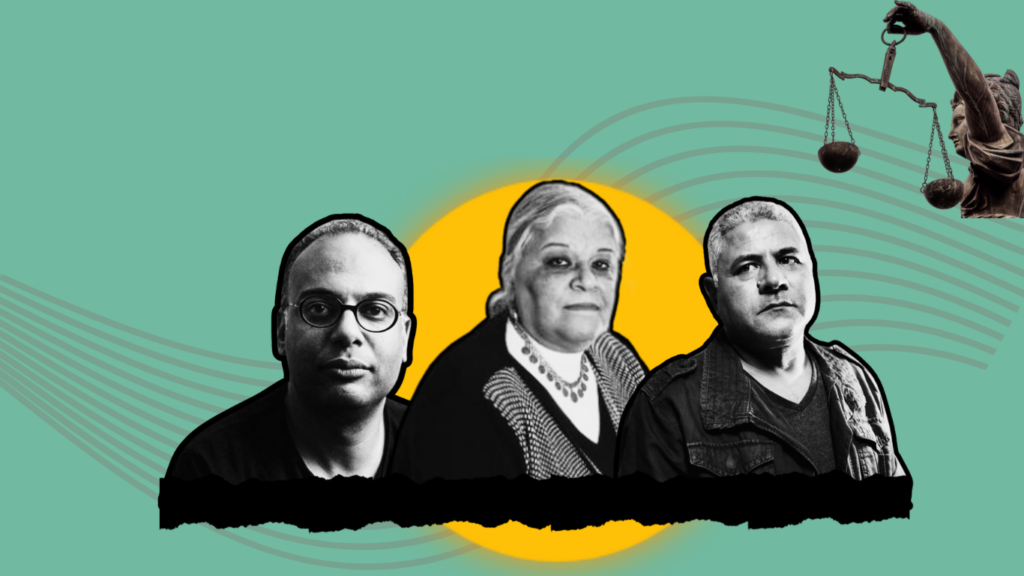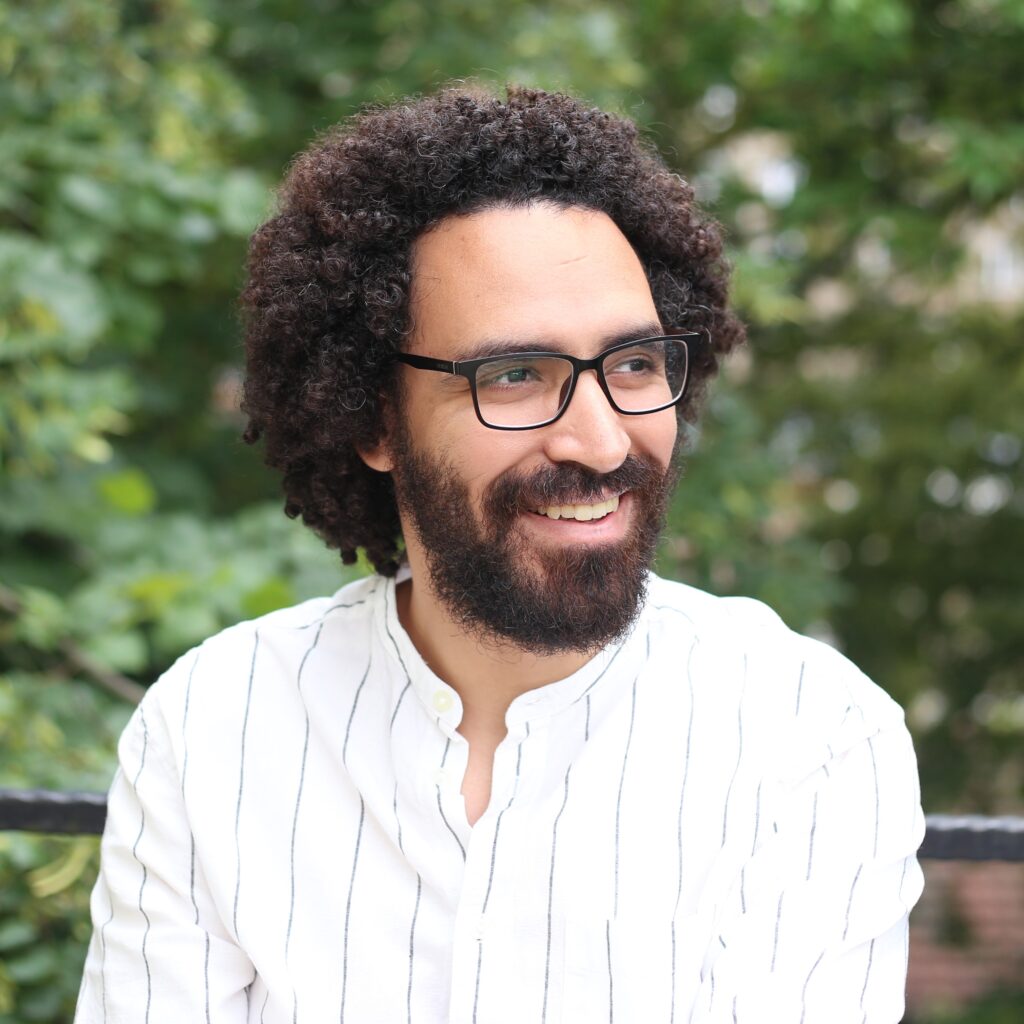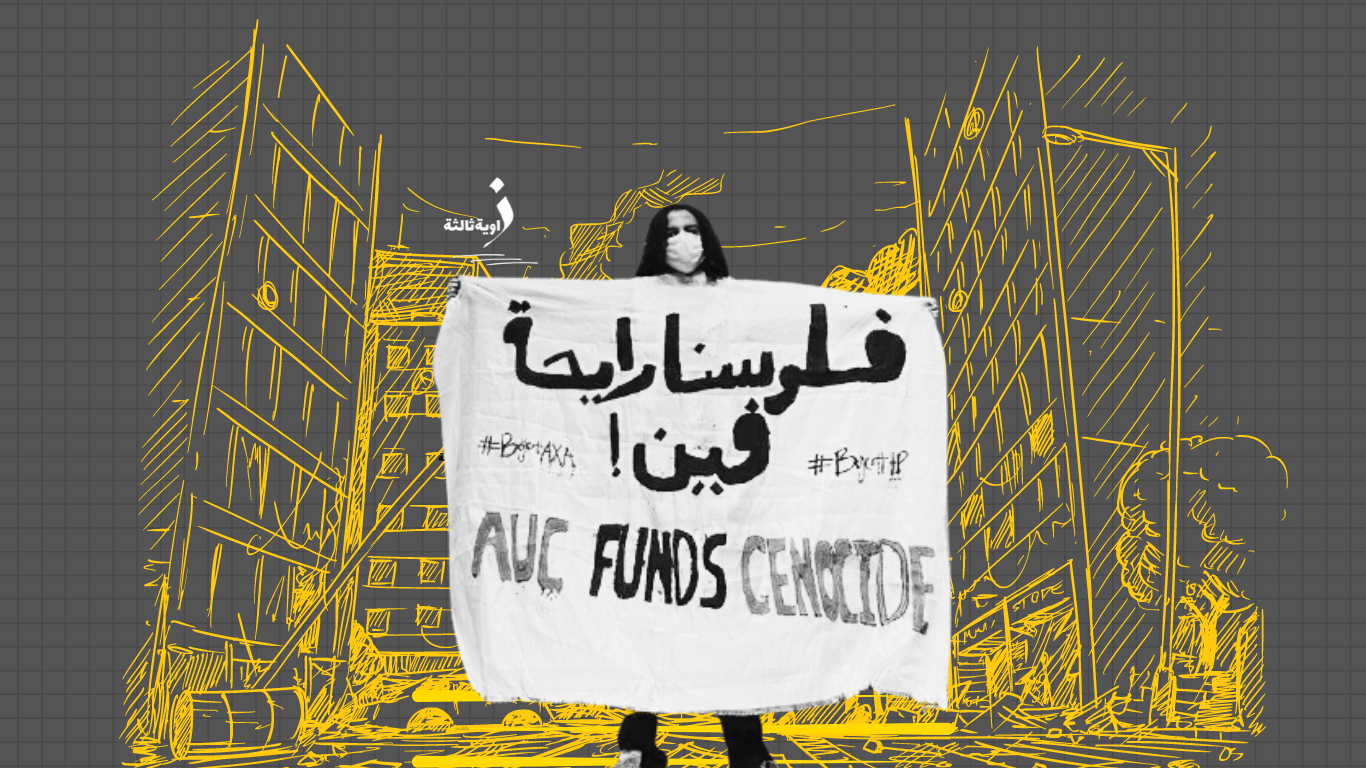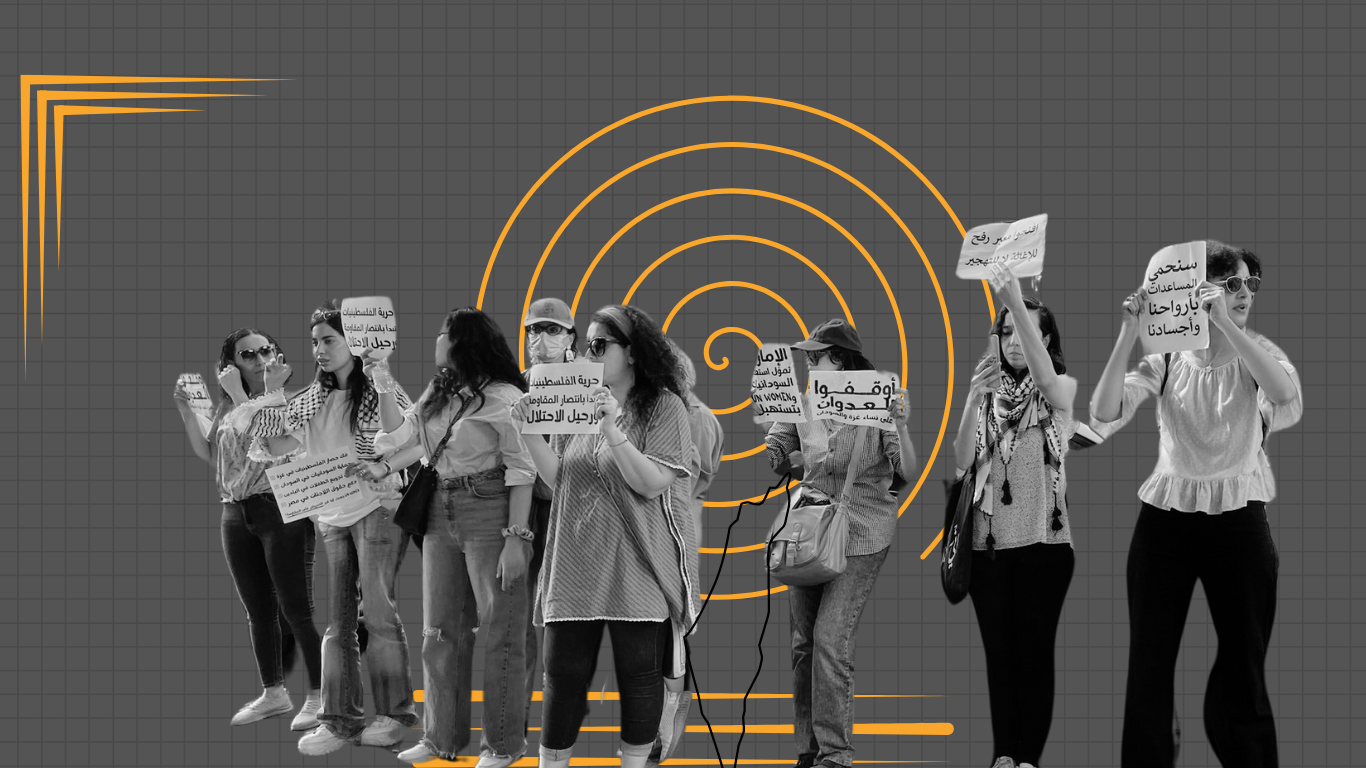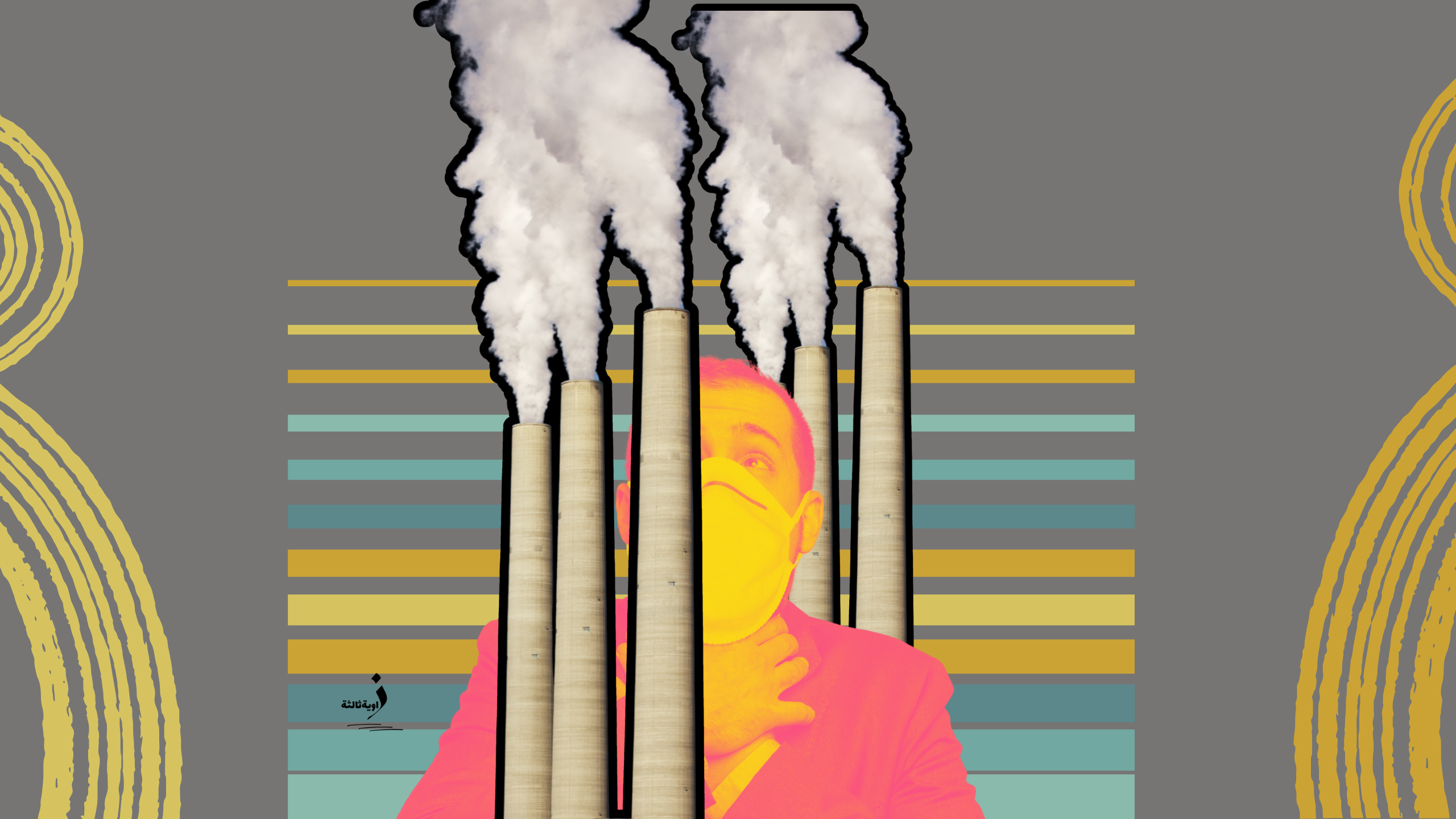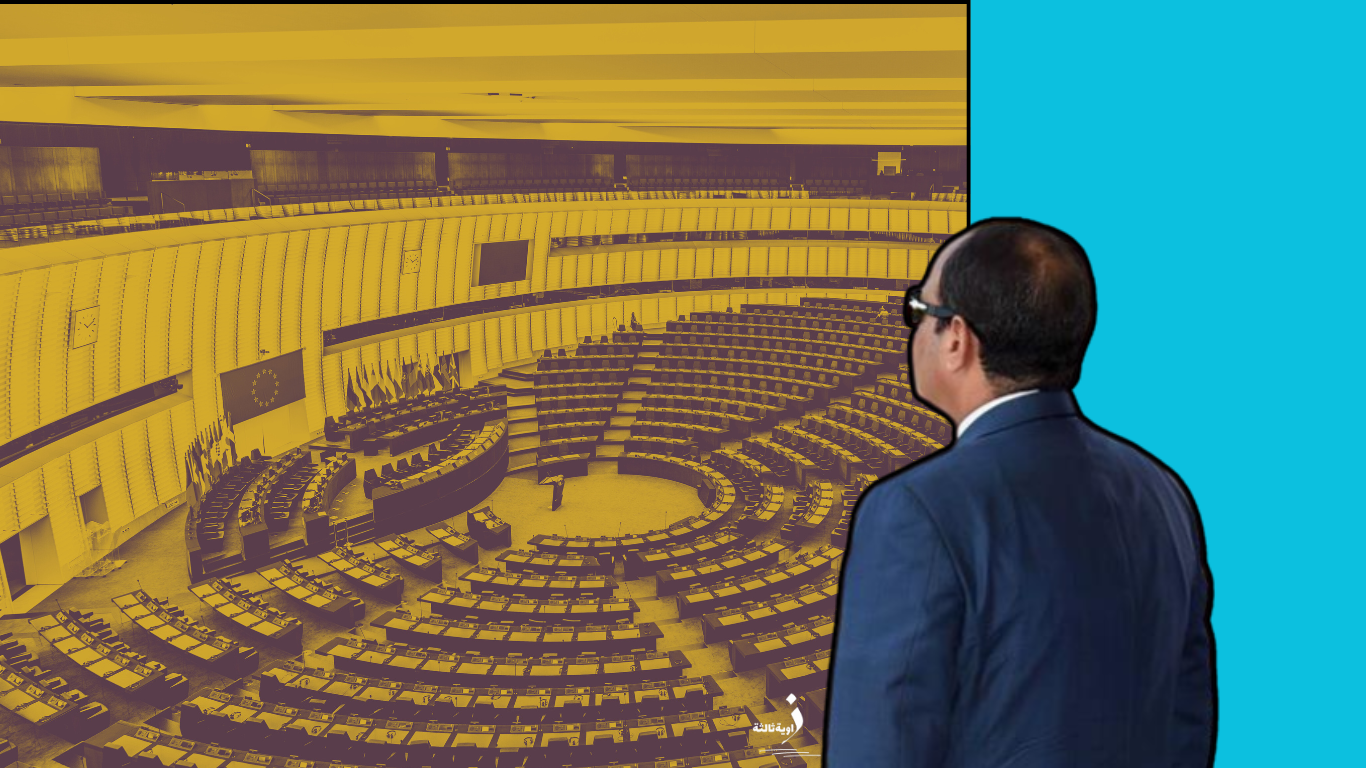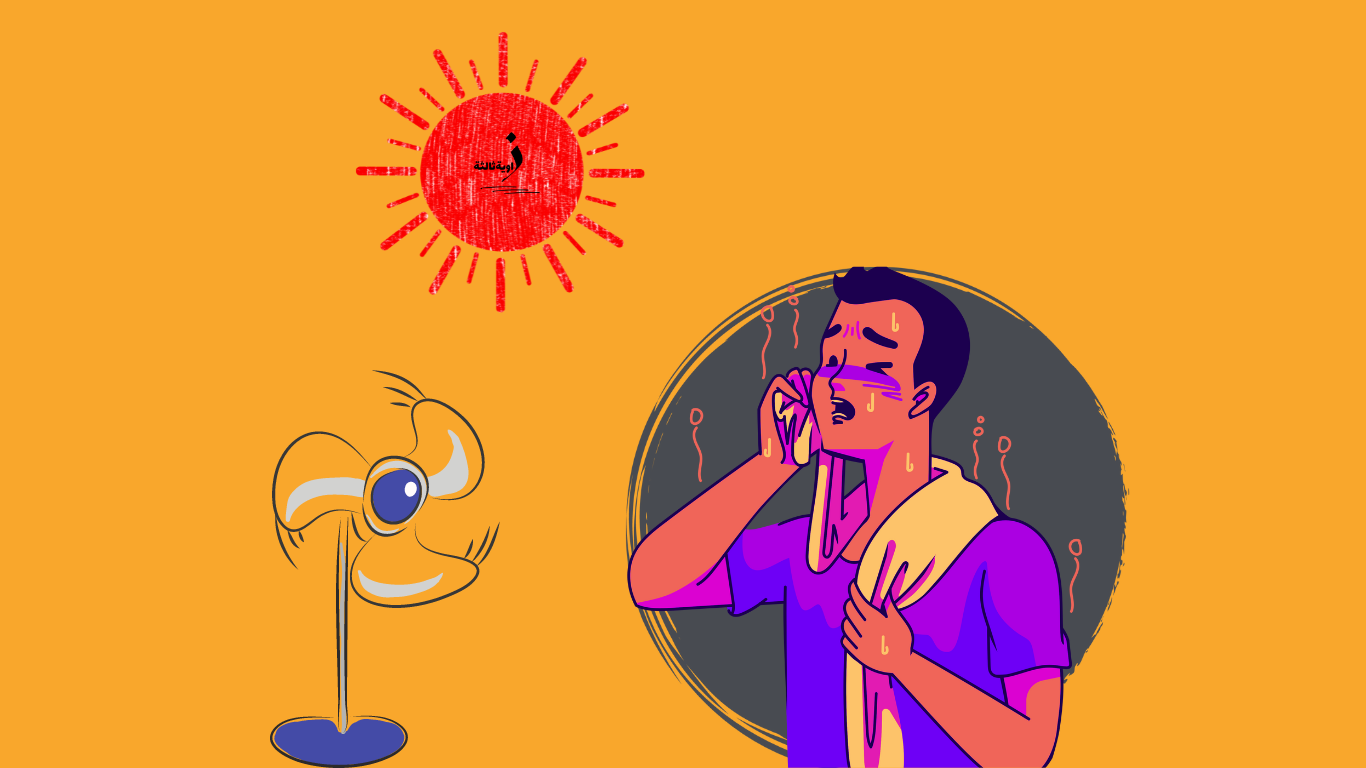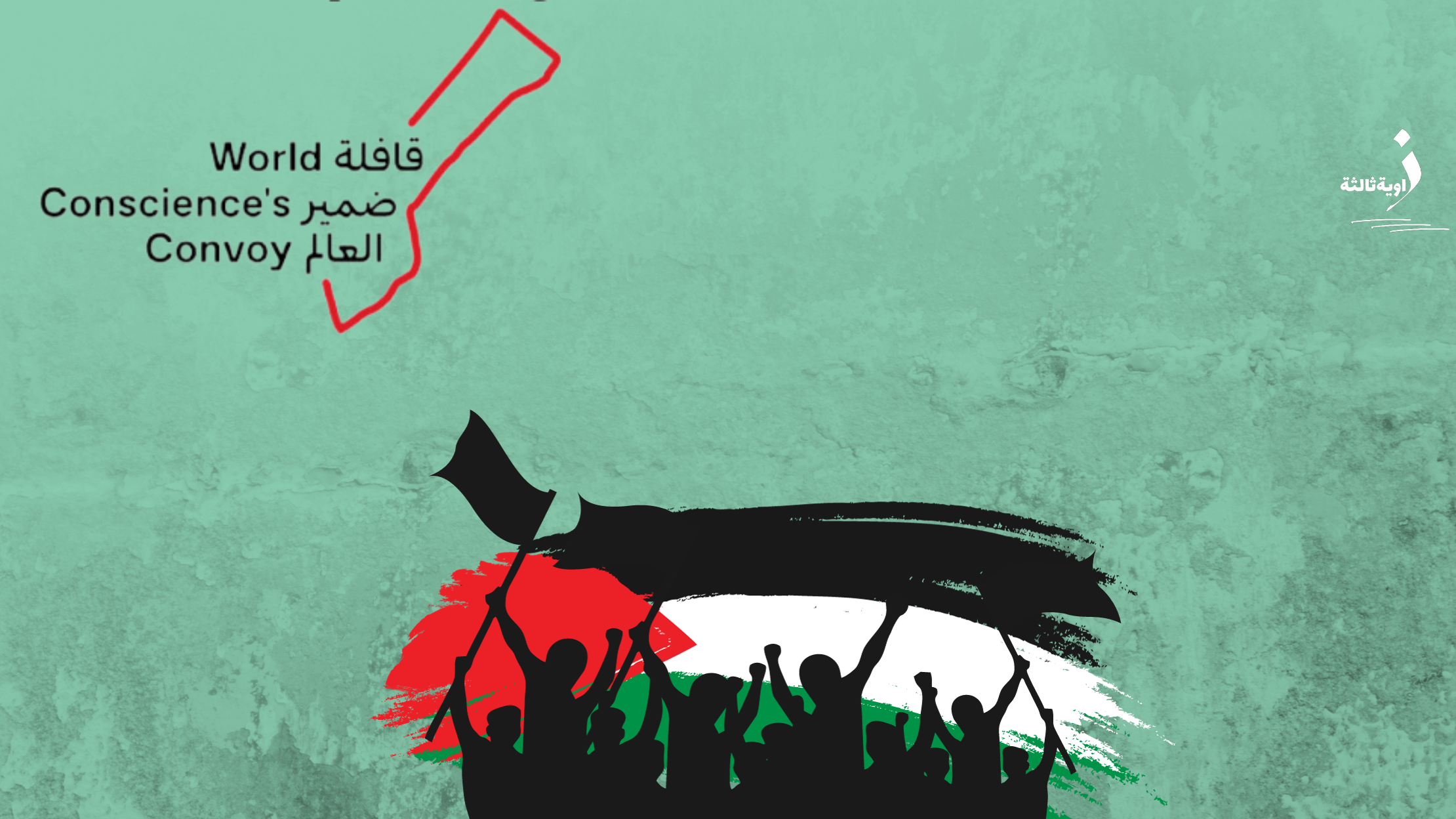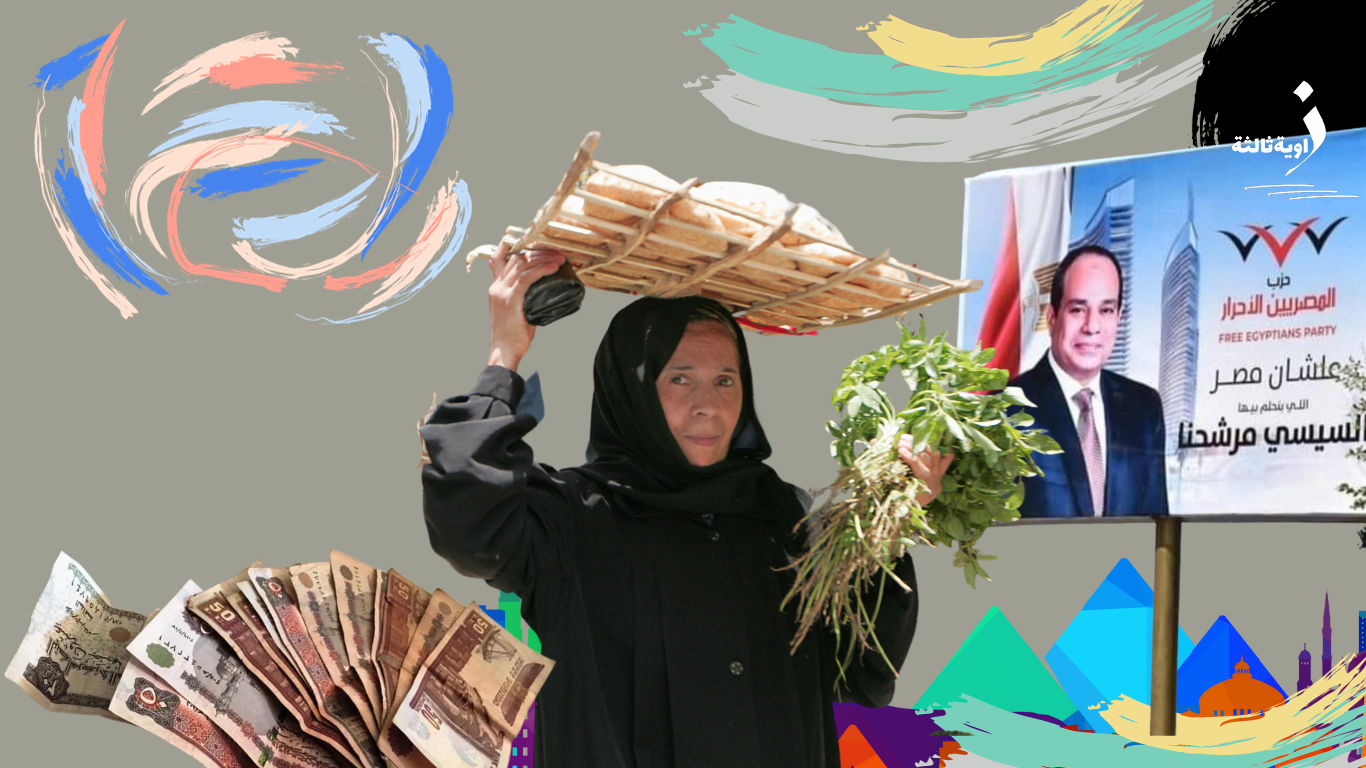After thirteen years of investigations, asset freezes, and travel bans in the case of civil society organizations, Investigating Judge Counselor Ahmed Abdel Aziz Qattan issued a decision yesterday, Wednesday, not to pursue criminal charges against 5 human rights organizations due to insufficient evidence: (Egyptian Initiative for Personal Rights, The Arabic Network for Human Rights Information, The Arab Organization for Criminal Reform, Cairo Institute For Human Rights Studies, El Nadeem Center for Rehabilitation of Victims of Violence and Torture). The decision included removing names from travel ban lists and freezing their assets, both movable and immovable.
The investigating judge clarified in a press statement that with this order, the number of organizations and associations against which orders not to pursue criminal proceedings have been issued is 85 orders, encompassing all the organizations and entities covered by the investigations in case No. 173 of 2011. Thus, the curtain has fallen on the case files, reaching its conclusion after the issuance of this order. This decision comes after a long journey of judicial pursuit that began in 2011 when the Cabinet requested the Ministry of Justice to form a committee to investigate foreign funding received by civil society organizations. In December 2011, security forces raided the headquarters of 17 organizations and detained several of their staff.
![]()
How is the decision understood?
Aida Seif Elldawla, a human rights defender and psychiatrist, is also noted for co-founding alongside other women the Nadeem Center for the Rehabilitation of Victims of Violence and Torture, one of Egypt’s most prominent and longstanding human rights organizations., and one of the defendants in case 173, Aida said in a statement to Zawia3, “It is good that the case has been closed and the travel ban lifted, but I do not understand the decision after all these years during which we heard a lot about the closure of the case.” Elldawla added, “No matter what happens, we cannot forget 60,000 detainees in prisons who share some of the accusations leveled against us in case 173, such as spreading false news and threatening national security, among other charges.” Nadeem Center questioned, “Is it not our right to demand an apology from the government media that vilified us for years? Is it not our right to reclaim our dignity after all the accusations of treason, collaboration, and defamation?” Elldawla concluded her statement saying, “I hope for the release of all detainees and those falsely accused.”
Nadeem Center faced several harassments during its recent years of operation, culminating in its closure and sealing in February 2017 by police forces and neighborhood officials. In February 2016, officials in the Azbakeya neighborhood attempted to close the center accompanied by representatives from the Ministry of Health, but closure was hindered by the center’s staff’s refusal to leave. Consequently, a report was filed at the Azbakeya Police Station to take legal action and implement the closure decision. After 4 years of litigation, Nadeem Center obtained an administrative court ruling canceling the closure decision.
![]()
Why now?
Hossam Bahgat, the director of the Egyptian Initiative for Personal Rights, believes that the closure of the civil society organizations case was both expected and unexpected at the same time. On the one hand, it was expected because Diaa Rashwan, head of the National Dialogue and coordinator of information, announced almost a year ago that the case was nearing closure. Moreover, the investigating judge issued a statement last August stating that only 10 organizations were still under examination and decisions regarding them would be made soon. Subsequently, a decision to preserve the investigation against one organization out of the ten was issued each month. From this perspective, it was understood that there was a parallel process happening alongside events related to the presidential elections, the economic crisis, the crisis in Gaza, or new financial aid and the expanded IMF loan.
On the other hand, “the closure of the case was not entirely expected,” Bahgat told Zawia3, adding, “because the timing of decisions in Egypt is often inexplicable, and the government does not adhere to what it announces.” He noted that there were 5 remaining organizations in the case, viewed as the “most hostile” to the Egyptian government, either because of their human rights activities or their stance on the January revolution.
He explained that some of these organizations froze their activities, such as “Hisham Mubarak Law Center and the Arab Network for Human Rights Information,” which posed a challenge because the state demanded they regularize their status. He also mentioned organizations that transitioned to work from abroad, like the Cairo Center for Human Rights Studies and the Arab Foundation for Criminal Reform. Their work outside Egypt and the absence of officials from these organizations led to them not being investigated or their statements being taken. Thus, there was anticipation whether the case would be closed without investigating them. The remaining two organizations are Nadeem Center and the Egyptian Initiative, both of which are organizations that the current regime does not hold much affection for, to put it mildly.
![]()
Legislative framework constitutes tools of persecution
“In 2023, some activists like Mohammed al-Baker and Patrick Zaki were released, but in the same year, four other activists were sentenced for documenting and publishing human rights violations, including Huda Abdel Monem and Ezzat Ghonim. Additionally, Huda Abdel Monem faced additional persecution, as she was sentenced to five years in prison. She had almost spent the five years in pretrial detention when she was sentenced, and on the day her sentence ended, she was referred to the State Security Prosecution, which charged her with a new case during her imprisonment period.” This is what Hossam Bahgat said when asked if there was any political breakthrough looming on the horizon.
Three colleagues of Hossam Bahgat in the Egyptian Initiative, Mohamed Bashir, Kareem Anara, and Yasser Abdel Razek, have been banned from traveling and managing their finances since December 2020.
Bahgat warns that closing the case of civil society organizations does not necessarily mean that violations will not recur in the future. He emphasizes that the current legislative framework, which allowed these violations to occur in the first place, still constitutes ready tools for persecution and revenge against anyone practicing legal and peaceful resistance to the current regime. Bahgat added that a new draft law on criminal procedures, presented for reform for the first time since the current law was issued in 1950, might provide an opportunity to reform the justice infrastructure in Egypt, including travel ban regulations, asset freezes, the authority of the public prosecutor and investigating judges, and the legal articles governing pretrial detention.
Bahgat stresses that this opportunity may not arise again and is not only for stopping violations but also for saving the system itself from widening the circle of oppression and the oppressed in the name of the law, which could lead to paying a hefty price if reform is delayed and repressive practices continue systematically.
He adds that among the anticipated legislative reforms is also the amendment of the Civil Work Law issued in 2019, which still allows broad intervention by the authorities.
![]()
Revenge
“I am waiting for the paper decision to turn into an actual decision to stop this injustice, so that I can appoint a legal representative, so that I can practice my profession as a lawyer, and pay the fees for cases by visa because I am prohibited from issuing it, so that I can visit and see my daughter more than once a year.” This is how the lawyer, human rights activist, and founder of the Arab Network for Human Rights Information, Gamal Eid, expressed his mixed feelings after the case was closed, describing it as “strange” while posing a question about the motives for its fabrication from the outset and “who benefits from all this evil?” according to his expression.
Eid criticized in a statement to Zawia3 the course of the investigations, confirming that they were nothing but “revenge” that was spread over him judicially, planned in closed rooms, and executed in the courts.
Regarding the evidence, Eid considered that it was not sufficient to open the case in the first place, pointing out that there were indeed violations by some organizations, but they were “organizations close to the state that were not punished, so they did not suffer from this retaliatory issue.”
Eid talked about the impact of the case on his work as a human rights activist, confirming that it constituted a violation within a wide range of violations suffered by all independent rights activists. Despite the closure of the case, Eid expected human rights organizations to continue facing significant challenges, pointing to their small number and the necessity of multiplying them to reduce violations. Eid rejected considering the closure of the case as a breakthrough, but considered it a correction of a mistake among the mistakes and disasters that reach the level of crimes. Regarding his legal steps, Eid confirmed his lack of trust in the existence of an independent judiciary that would vindicate him, which led him not to take any steps.
In conclusion, Eid demanded “real breakthrough” represented in releasing the innocent, the right of return for those deported from their countries without revenge, the freedom to travel, stopping the use of Cairo Airport as a trap, and the return of the police to serving the people in action, not just in words.
Eid had previously informed us in earlier statements that he had decided to close the Arab Network for Human Rights Information because the new civil work law was unjust, and because the network was targeted by arresting its employees and researchers. One of the reasons Eid listed for the closure was that he was still accused in case 173, known in the media as the case of civil society organizations, which prevents him from signing documents or opening bank accounts, and prevents him from traveling.
Before deciding to close it, the Arab Network for Human Rights Information in Egypt revealed in 2019 a new assault on its human rights director Gamal Eid, by officers and security personnel who they confirmed stalked him near his home, assaulted him, before dousing him with paint. Before that, the Arab Network for Human Rights Information said that a security apparatus smashed a lawyer’s car in the Arab Network in the early morning, days after a brutal attack on the director of the network, the theft of his car, and the arrest of the lawyer at the Arab Network, Amr Imam, who was later released.
![]()
Pressure?
Hussein Baoumi, Advocacy Manager for the Middle East and North Africa at Amnesty International, said his organization welcomes the decision to close the case, but Baoumi pointed out that “the case was baseless and its goal was to suppress human rights defenders in Egypt because of their activities and their defense of tens of thousands of people whose rights were violated by the Egyptian authorities.”
Baoumi told Zawia3 that “the Egyptian authorities must compensate those who have been harmed throughout this period of travel ban, asset freezing, false accusations, and apologies. After all these years, the investigating authorities did not bring anything, in addition to the significant damage and defamation campaigns built on this issue.” He also considered that it should not be “we should not forget that there are human rights defenders prohibited from traveling pending other cases, in addition to those detained for their human rights activities.”
We asked Baoumi about his opinion on closing the case at this time, he said, “In the absence of transparency, it cannot be asserted because of the current timing, but there are some indications. The decision came after a visit by a number of European Union leaders to sign the elevation of relations to strategic between Egypt and the European Union. Looking at the data of the visits preceding the visit, we saw that there is a focus on the freedom of action of organizations in Egypt. The Belgian Prime Minister pointed out in his speech to the importance of civil work freedom in Egypt.”
We asked a source familiar with European-Egyptian relations in Brussels, who confirmed to Zawia3 that there are 3 points discussed by the European delegation in its meeting with President Abdel Fattah El-Sisi, represented in lifting the ban on journalistic sites, closing case 173 related to civil society organizations, and some individual cases.” The source did not name those cases.
Ahmed Atallah, Executive Director of the Egyptian Front for Human Rights, believes that in addition to it cannot be called a breakthrough, it must be clarified that what happened came as a result of pressure from abroad, considering that the national dialogue taking place in Egypt cannot have any impact without these external pressures, because “the situation has not changed completely and everyone is exposed to repression.”
On March 17, 2024, Amnesty International called on all leaders to ensure that respect for human rights is at the heart of all relations between the European Union and Egypt. The organization said, “As European Union leaders seek to strengthen their relations with Egypt, they must not risk complicity in the ongoing serious human rights violations in the country.” Eve Geddy, head of the European Institutions Office at Amnesty International, said that journalists and human rights defenders are still facing arrests, surveillance, travel bans, asset freezes, and other harassment measures amid an unrelenting crackdown against all forms of opposition.
The organization expected that as part of the strategic partnership, the European Union and Egypt are expected to negotiate EU investment in border management, including providing the Egyptian authorities with equipment and support for border monitoring and preventing departure.
On March 17 last year, the President of the European Commission, Ursula von der Leyen, visited Egypt, accompanied by the Prime Minister of Italy, Giorgia Meloni, the Prime Minister of Belgium, Alexander De Croo, the Austrian Chancellor, Karl Nehammer, and the Greek Prime Minister, Kyriakos Mitsotakis, to push negotiations with Egypt. Egyptian President Abdel Fattah El-Sisi talks about the strategic partnership between the European Union and Egypt. According to what was reported, this partnership includes 7.4 billion euros provided by the European Union in the form of grants and loans until the end of 2027.
![]()
Are Diaspora Organizations Returning to Egypt?
It’s too early to talk about any breakthrough in Egypt… That’s what Hussein Baoumi, the advocacy manager for the Middle East and North Africa at Amnesty International, said, considering the judicial decision “neither judicial nor independent.” Baoumi believes that obstacles to the work of organizations still exist, including “the authorities’ ability to harass human rights defenders at any time, and the complete absence of judicial independence, using it to legitimize security decisions,” as he expressed it.
He also believes it is very difficult for Amnesty International to operate in Egypt at the moment, perhaps even impossible to conduct research or reports, or even register in Egypt. However, we will continue to monitor the situation to see if this step will be followed by other decisions, or if this is the state’s understanding of launching civil work in Egypt.
Mustafa Fouad, program director at HuMENA For Human Rights and Civic Engagement, agrees with Baoumi’s opinion. He was summoned before the investigating judge in Case 173, but traveled abroad to continue his work before being banned from traveling. Fouad believes he will stay abroad for a long time because he sees no real improvement in the work freedom of human rights organizations. He told Zawia3, “After 13 years of Case 173, which included many individuals and human rights organizations, correcting the error is not justice,” questioning the reasons for closing the case and whether it indicates that the current authority decided to open public space and civil work freedom, or is it just a result of ongoing European pressures, especially after the recent European visit. Fouad supported his concern with a report issued by the Safeguards Observatory for Measuring Civil Society and Civil Liberties, saying that Egypt is a completely closed country regarding the freedom of human rights organizations.
Case 173 dates back to 2011 when the Cabinet requested the Ministry of Justice to form a committee specialized in investigating foreign funding received by civil society organizations. Assistance on this matter was requested from the Ministry of Planning and International Cooperation, the Ministry of Social Solidarity, the National Security Apparatus, the General Intelligence, and the Ministry of Foreign Affairs. In December 2011, the police raided the headquarters of 17 of these organizations, detained some of their employees, and seized their properties. Before 43 of the employees of these organizations – including 27 foreigners – were referred to trial in February 2012, on charges including “receiving foreign funds with the aim of harming national interests or undermining national independence or unity, and managing associations without a license.” In June 2014, the Cairo Criminal Court issued sentences ranging from one to five years imprisonment for 43 foreign and Egyptian defendants from international organizations, and ordered the closure of organizations such as the “Republican Institute”, the “National Democratic Institute”, “Freedom House”, the “International Center for Journalists”, and the “Konrad Adenauer Foundation”. After that, the case was divided into two parts; the first was dedicated to foreign organizations operating in Egypt, ending in December 2018 with the acquittal of all foreign defendants. The second concerns local organizations.
Over 13 years, many decisions were issued to freeze assets and travel bans against workers in civil society organizations, before decisions were made to shelve the investigation against some of them, which did not include most of those banned from travel or whose assets were seized. Last August, the Ministry of Justice reported that the investigating judge in the “foreign funding” case had completed the investigation into 75 organizations and issued orders to shelve the cases due to lack of justification for continuing criminal prosecution, leading to the cancellation of travel bans or placing them on watch lists or freezing assets.

